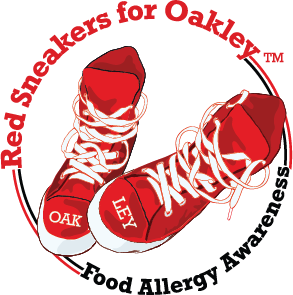Here Are Some Things You Should Know
Spreading awareness is what we're all about. Here are some things you should know 👇
▪️ Symptoms of anaphylaxis can sometimes take more than an hour to manifest themselves.
▪️ Prior reactions are not indicative of the severity of future reactions. There is no such thing as a "mild" food allergy.
▪️ When symptoms relating to two bodily systems manifest themselves after ingesting an allergen, use epinephrine. (ie: hives along with vomiting, or hives with trouble breathing).
▪️ Epinephrine is the ONLY first-line medication for anaphylaxis. Other medicines such as antihistamines (Benadryl) might help for hives but cannot treat anaphylaxis.
▪️ If you suspect anaphylaxis, Epi First Epi Fast, then call 911.
▪️ Always Carry TWO epinephrine auto-injectors. Sometimes a second dose is needed.
▪️ In most cases of fatal allergic reactions, there was either a delay in administering epinephrine, or it was not given at all. Don't hesitate.
▪️ Read EVERY label EVERY time. If there is no label, like food from a gift basket, do not risk it.
▪️ Be aware of anaphylactic cofactors. Ex: exercise prior to ingesting an allergen can exacerbate the reaction. There are a variety of other cofactors to be aware of as well.
▪️ Always use soap and water to clean hands or surfaces. Hand sanitizers do not remove food proteins.
▪️ Be careful to avoid cross-contact (ie: a coffee shop frothing almond milk in the same pitcher they use to froth cows’ milk—without properly washing it in between).
▪️ Create an Emergency Action Plan with your allergist and keep it updated.
▪️ Food allergy bullying is real. Talk to your kids about the importance of telling you if they are the victim of bullying.
▪️ Make sure your family & friends understand the dangers of food allergies.
▪️ Be aware of the correct body positioning for anaphylaxis. Keep the person laying down with bent knees and feet elevated. DO NOT let them stand up, even when the ambulance arrives.
